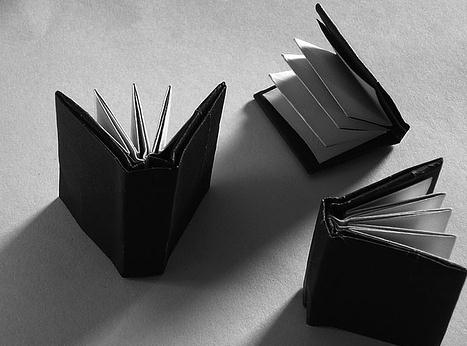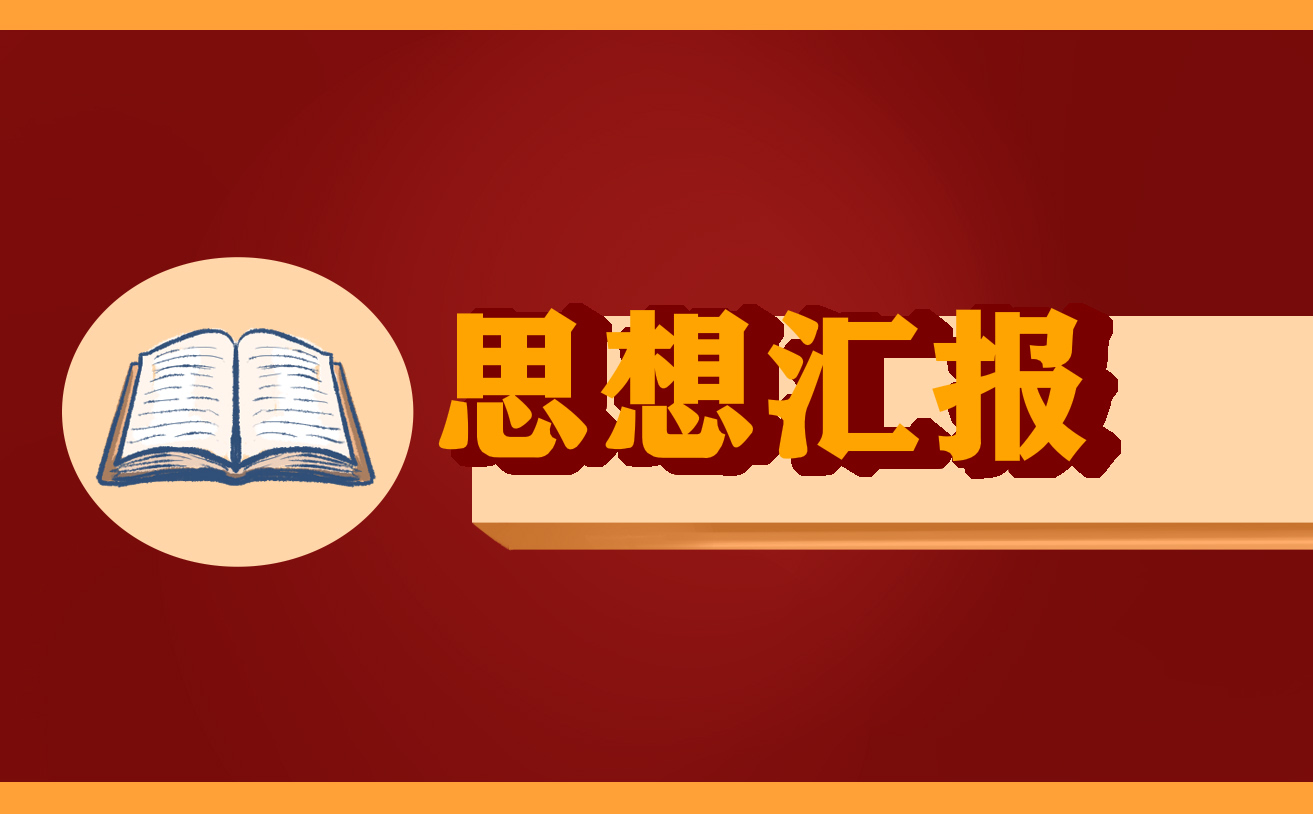下面是小编为大家整理的2022定语从句短文,供大家参考。希望对大家写作有帮助!

定语从句短文3篇
【篇一】定语从句短文
定语从句
1.定语从句和形容词
当我们要修饰某个名词时,我们以前一般会用形容词来完成。所谓形容词,就是都可以翻译成“……的”的词语。形容词放在句子中修饰别人的时候,就会被定义为定语,也就是限定别人的词语。例如,我们想用英文说这样的一个意思:我不喜欢黑色的狗,我们可以这样造句: I don’t like black dogs.
但是,当我们要表达更加复杂的意思,例如说“我不喜欢不守信用的人”,这时,就无法直接用一个形容词作定语了,而必须用一个句子。就中文而言,是没有定语从句的。当我们要用一个句子作定语的时候,直接在这个句子后面写一个“的”即可。但是英文总想一个句子中只有一个动词作谓语,其它的动词要用某些变化区别开来,于是定语从句就诞生了。
“我不喜欢不守信用的人”这句话可以这样翻译:
I don’t like people who never keep their word.
看上面这个句子,我们知道,上面这个句子位于被修饰词的后面,而形容词位于修饰词前面。“I don’t like black dogs”中,lazy修饰dogs,而这个句子中,整个句子修饰people,因此称这种句子是定语从句。说它是从句,因为这句话中有I don’t like people这个主句。
2.先行词和关系词概述
还是回到刚才那个句子:I don’t like people who never keep their word. 我们把who定义为关系词,把people定义为先行词。所谓的先行词,就是从句要修饰的那个词。关系词除了某些特殊的情况外,都会紧接着先行词。而关系词有两个功能:代替先行词和连接主句和从句。
3.who和whom
我们先看两个句子:
I know the man.
The man is talking to my father.
我们可以用连词把这两个句子连在一起: I know the man and the man is talking to my father. 观察这个句子,我们发现,这个句子有一个共同的词叫the man,这时,根据定语从句的连接词的功能,我们用定语从句修改这个句子:I know the man who is talking to my father.其实大家会发现,这个who的作用就是and the man 的作用。
接下来,我们要研究的是who和whom的区别。我们先看这两例子:
He is a good student who studies hard.
I want to find a friend whom I can trust.
观察上面两个句子,我们可以看不出,第一句子中who 充当了从句中的主语(studies hard中没有主语),而且从句中的谓语动词studies形式由student决定。第二个句子中,whom充当从句的宾语(trust 后面没有宾语)。
最后,我们可以总结,who和whom都可以作为连接词,都是指人。关系词作为从句主语时,用who,宾语或表语时,用whom。从句缺少什么成分,关系词就充当什么成分。但是在大家的口语交流当中,美国人已经淡化了这种区别(因为他们嫌麻烦),所以对于口语来说,大家可以一律用who。
4.which
我们已经知道,当关系代词指人时,用who和whom。而当关系代词指物的时候呢?我们可以用which.不管充当宾语表语还是主语,只要指物,一般用which.我们看下面这两个例子:
That pen which he took is mine.
I love that book which is very interesting.
很明显,第一个句子中,which充当从句的宾语,第二句子中,which充当从句的主语。
5.whose
如同my, your, her等这些单词一样,whose后面要接名词。重点是这个单词既可以指人,也可以指物。先看这两个句子:
I know a friend. His brother is a pop singer.
接着,我们把这两个句子连接起来:
I know a friend whose brother is a pop singer.
“whose + 名词”在从句中可以做主语、动词的宾语和介词的宾语。
6.复习:介词宾语
当我们在一个介词后面放一个词语,词组或者从句时,放在介词后面的成分叫介词宾语。例如:
I have something share with him.
Let us talk about this problem.
I am looking for my pen.
上述句子中加粗的成分就叫介词宾语。由于定语从句的关系词可以充当从句的宾语,它可以充当动词的宾语,也可以充当介词的宾语。
7.关系词充当从句中介词的宾语
例:I like people who I work with.
在上面这个句子中,who就充当with的宾语。
注意:上述句子的介词可以前置,当介词前置时,指人只能用whom,指物只能用which。
8.不速之客: that
that这个单词大家可以认为它是后来加进来的。that也可以充当定语从句的关系代词。而且它可以指人,也可以指物。that这个单词登上历史舞台之初,就是为了能有一个关系词可以指代先行词同时出现物和人的情况。总的来说,that既可以指人,也可以指物。但是下面情况只能用that:
1)先行词同时出现人和物时;
2)先行词是不定代词时;
3)先行词被形容词最高级修饰时;
4)先行词被序数词修饰时;
5)先行词被the only,the one,the very,the last等词修饰时。
注意:that不用在介词后面。
9.关系副词
关系副词是指这个关系词是副词来的。我们在前面提到的关系代词which who that whom都是关系代词,因为这几个单词是代词来的。关系副词都是由“介词+关系代词”而来,具体如下:
Where (on which; in which; at which):表示地点
When (on which; in which; at which):表示时间
Why (for which):表示原因
例句:
I will never forget the day on which I met you.= I will never forget the day when I met you.
This is the town in which I spent my childhood= This is the town where I spent my childhood.
This is the reason for which I didn’t come here= This is the reason why I didn’t come here
10.总结
1)定语从句一定要有先行词;
2) 关系代词可以充当从句的主语,宾语和表语;
3)若关系代词不充当主语,宾语和表语,则关系代词前一定要有介词。
【篇二】定语从句短文
定 语 从 句
一、在复合句中用作定语的从句叫定语从句。定语从句通常置于它所修饰的名词(或代词)之后,这种名词(或代词)叫做先行词。引导定语从句的关联词为关系代词或关系副词。关系代词在定语从句中可用作主语、宾语和定语等;
关系副词在定语从句中只用作状语。
二、关系代词引导的定语从句
who可引导定语从句,指人,在从句中作主语(在非正式英语中亦可作宾语)。
Let"s count the people who are present.咱们把到的人数点一下。He is a man who does not criticize or reflect.他是个既不评论也不思考的人。People who work as hard as you are few and far between!像你这样努力工作的人真是太少了!The man who I saw is called Smith.我见到的那个人名叫史密斯。The man who telephoned was a friend of yours.打电话的人是你的一位朋友。He who knows himself is wise.自知者明。He who laughs last laughs best.谁笑在最后,谁笑得最好。There is a lady who wants to see you.有一位女士要见你。
whom可引导定语从句,指人,在从句中作宾语,可省略。
The girl with whom he had been living for two years suddenly packed her bags and left.这姑娘和他同居了两年,突然收拾起行李走掉了。The police have pulled in a half dozen people whom they suspect.警方已逮捕6个他们怀疑的人。That"s the girl (whom) I teach. 那就是我教的女孩。The person (whom) you wish to see has come.你希望见到的人已经来了。
whose可引导定语从句,通常指人,也可指物,在从句中作定语。
He is a shallow thinker whose opinions aren"t worth much.他看问题很浅薄,他的意见没有多大价值。The play,whose style is rigidly formal,is typical of the period.这剧本是那个时期的典型作品,风格拘谨刻板。Nobody is going to buy a house whose front door opens onto a gas works.没有谁会买一栋前门对着煤气厂的房子。I"d like a room whose window looks out over the sea.我想要一个窗户面临大海的房间。
which可引导定语从句,指物,在从句中作主语或宾语。作宾语时,常可省略。
This is the room which is kept for the reception of visitors.这是专供接待来访者用的房间。There is a special parasite which gives rise to the itch.有一种特别的寄生虫会导致皮炎。Lally was right about the repairs which the cottage needed.拉莉关于农舍需要如何修理的意见是正确的。Rule out neatly any words which you don"t wish Jack to read.把你不想让杰克看的词句整整齐齐地划掉。The sports day is an occasion which we can all join in.运动日是大家都能参加运动的一个机会。
that可引导定语从句,可指事物,也可指人,在从句中作主语或宾语。作宾语时,常可省略。
There is the man that I was telling you about.我跟你说过的那个人就在那里。When I was 17,I opened an inviting letter that decided me on my choice of colleges.我17岁时接到一封邀请函,这封信对我选择什么样的大学起了决定性作用。She is one of the students that work very hard. 她是特别用功的学生之一。I like those cookies that are coated with chocolate spread.我喜欢那些裹巧克力酱的甜饼。Here is the car that I had told you about.这就是我和你谈过的那辆汽车。
as也可用作关系代词,既可以单独引出定语从句,又可与主句中的the same或such相呼应,从句中谓语动词常省略。
I never heard such stories as he tells.我从未听过他讲的这类故事。The two brothers were satisfied with this decision,as was agreed beforehand.两兄弟对这个决定都满意,它事先已经他们同意了。I have never seen such a man as you talked about.我从没见过你说到的那种人。During this terrible year they took only such food as they could find.在这可怕的年头里,他们只能找到什么吃什么。He is not the same boy as he was.他和从前不一样了。Her attitude to him was quite the same as it had always been.她对他的态度同她一贯的态度完全一样。
引导定语从句的关系代词前有时有介词,这类从句中的介词放在从句的末尾时关系代词可以省略。
I gave him old clothes which he made a penny of.我给了他一些旧衣服,让他拿去换钱。The situation (which) we had got into was very dangerous.我们当时的处境很危险。The man (whom) we sent the present to is a doctor of laws.我们寄给他礼物的那个人是位法学博士。He married a wife by whom he had two daughters.他娶了妻并和她生了两个女儿。Water is the natural medium in which most fish live.水是大多数鱼类生活的自然环境。
三、关系副词引导的定语从句
when可引导定语从句,表示时间,其先行词往往是表示时间的名词。
The boss caught me on the wrong foot when he asked where I was yesterday when I should have been at work.老板问我昨天上班时间到哪里去时使我措手不及。There were long periods when we had no news of him.我们曾好长时间没有他的消息。This is the hour when the place is full of people.这种时候这地方到处都是人。
where可引导定语从句,表示地点,其先行词往往是表示地点的名词。
It was found at the precise spot where he had left it.那东西正好在他遗落的地点找到了。Returning to a city where one used to live can be a saddening experience.重归故地有时会给人带来几许惆怅。I went off in search of a garage where I could buy some petrol.我跑去寻找加油站买汽油。
why可引导定语从句,表示原因,常用在先行词reason后面。
The reason why I"m going is that I want to.我要去的原因是我想去。We don"t know the reason why they have broken up with each other.我们不知道他们的关系为何破裂。The reason why he is late is that his car went wrong.他迟到的原因是他的汽车坏了。That is the reason why we must go now.这就是我们现在必须走的理由。This is one of the basic reasons why some of our work can"t be done well.这是我们有些工作做不好的一个基本原因。
how可引导定语从句,表示方法,常用在先行词way后面。
This is the way how he always treats me. 他一贯就是这样对待我的。That"s the way how I learn English.那就是我学英语的方法。
四、限定性定语从句与非限定性定语从句
限制性定语从句是先行词在意义上不可缺少的修饰成分,如果去掉,主句的意思就不完整或失去意义,这种从句与主句的关系十分密切,与主句之间不能用逗号分开。
We have worked out a scheme which should save the company several thousand pounds a year. 我们设计出一个一年可为公司节省几千英镑的计划。The custom dates from the times when men wore swords.该习俗始于人类佩带刀剑的时代。
非限制性定语从句与主句关系不十分密切,只是对先行词作附加说明,如果去掉,主句的意思仍然完整。这种从句和主句之间往往用逗号分开,一般不用that引导。
Don"t indulge in wild talk,which leads nowhere.别漫无边际地空谈了,那不会有什么结果的。When she lost her temper,which was seldom,she wouldn"t touch any food for a long time.她不常发脾气,但是一旦她发脾气就长时间不吃任何东西。She decided to leave that city,where the very air was charged with hate.她决意离开那座城市,那里连空气都充满着憎恨。The patient,who had been asleep for nearly three hours,began to move his limbs.病人睡了将近3小时才开始动一动胳膊和腿。This could be the winning game for the challenger,who only needs two more points for the championship.这场比赛可能是挑战者获胜,他只要再得两分就得冠军了。
五、关系代词that与which的区别
that和which一般可换用。
This is the book which/that you asked for.这是你要的书。
当先行词为不定代词,如anything,nothing,everything,all,any,little,few,none,much,one等时用that。
I haven"t done anything that should upset you.我未做任何惹你生气的事。There occurred nothing that was worthy to be mentioned.没有值得一提的事发生。Everything that we"re doing is all perfectly above board.我们做的每件事情都是光明正大的。I can credit all that you are telling me.我可以相信你告诉我的一切。The conference was similar to any that had gone before.I don"t want to come again.会议与以往的差不多,我再也不想来了。Nearly all the wine had been drunk,but we finished the little that was left.酒差不多喝光了,不过我们还是把剩下的那点儿干了。His proposal contains much that is reasonable.他的建议包含不少合理的因素。A hateful person is one that arouses feelings of hatred in you.可憎之人就是会使你产生憎恨之情的人。A deep subject is one that is hard to understand.深奥的问题是难以理解的。
当先行词被序数词或形容词最高级修饰时用that。
The first thing that struck me was the numerous charts that covered the walls.首先给我留下深刻印象的是墙上有大量图表。The third tree that I planted was cut down by someone again.我种下的第三棵树又被人砍倒了。He gives the driest speech that I have ever listened to.他的讲话是我所听过的最枯燥的。The worst matter that I am afraid of happened in the end.我担心的最糟的事情终于发生了。It was the largest map that I ever saw.那是我所看见过的最大的地图。
当先行词被all,any,every,each,few,no,some等词修饰时,关系代词用that。
They pushed open all the windows that remained closed for a whole month.他们把整整关了一个月的窗子都推开了。All the presents that your friends give you on your birthday should be put away.你生日那天你的朋友送给你的礼物都必须收好。I have some things that I must do today.我有一些今天必须做的工作。Would you please correct any wrong spellings that you find?请改正你发现的拼写错误,好吗?/There is every chance that she will succeed.她完全有机会取得成功。I have no money that I can spare.我没有多余的钱。He quickly knocked out the few things that had to be looked after before leaving.他迅速办好了几件动身前必须料理的事情。
当先行词被the very,the only,the same,the last修饰时,关系代词用that。
This is the very book that I have been looking for.这是我一直寻找的那本书。She is the very person that I wanted to see.她正是我要见的人。He was the only person that could rule over the tribes.他是唯一能统治那些部族的人。He is the only one of us that knows Russian.他是我们中间唯一懂俄语的人。That"s the same man that asked for help the day before yesterday.这个人与前天求援的是同一个人。It is the same song that I heard yesterday afternoon.这就是我昨天下午听的那首歌。He is the last man that I want.他是我最不想见的人。She was the last person that came back.她是最后一个回来的人。
当先行词中既有人又有物时,关系代词用that。
He was watching the children and parcels that filled the car.他望着塞满车的孩子和包裹。We talked about the persons and things that we remembered in school.我们谈到了我们还记得的学校中的人和事。
当主句是由who或which开头的疑问句时,关系代词用that。
Which of the books that you bought yesterday was written by Bacon?你昨天买的哪本书是培根写的?
引导非限制性定语从句用which,不用that。
He proudly pointed out the biggest sheep,which already weighed 150 kilograms.他骄傲地把最大的一只羊指给我们看,它已经有150千克重了。The women never drink in this manner,which is absolutely special to men.妇女从来不用这种方式喝酒,这完完全全是男人喝酒的方式。Glass,which breaks at a blow,is,nevertheless,capable of withstanding great pressure.玻璃尽管一击就碎,却能承受很大的压力。
介词之后须用which。
I dislike the school to which he belongs.我不喜欢他所在的那所学校。If you run back over the season, you can"t pick out a game in which he played badly.如果你回顾一下那个赛季,你找不出他哪一场打得不好。This is the point,from which all distances are measured.从这一点开始来测量各个方向的距离。
当先行词为something时,关系代词可用that,也可用which。
Painting is something that I really enjoy doing.绘画才是我真正喜欢做的事。We may eventually become members of the club, but this is not something that should be rushed into.我们最终会成为俱乐部成员的,但不能草率行事。Freedom is something which is won,not granted.自由是争取来的,不是别人赏赐的。I"ve just struck on something which might be of use to us.我刚才想到一个办法可能会对我们有用。
【篇三】定语从句短文
定语及定语从句
一,定语
句子中修饰名词或代词的成分叫做定语。
定语可以由形容词,名词,不定式,分词,动名词或从句来充当。
eg: She is a beautiful girl. (形容词)
I met someone funny on my way to Beijing. (形容词)(修饰不定代词的定语后置)
He is an English teacher. (名词)
(名词作定语时一般用单数,例外的有sports, 如 a sports star)
I have a lot of work to do. (不定式)
The book written by a schoolboy is very popular now. (过去分词短语)
We can see the rising sun. (现在分词) = the sun is rising.
He is in the reading room. (动名词) = the room for reading
The boy who broke the window is Tom’s brother. (从句)
注意:1.形容词作定语一般放在所修饰的词前面;
但当形容词修饰的是something, anything, everything, nothing, someone, everyone, everybody, somewhere等不定代词时,要放在这些词的后面。
present (在场的), absent (缺席的)作定语时需要后置。 students present / absent
2. 不定式做定语通常要放在被修饰的词后。
3 分词作定语时,即可放在所修饰词前,也可放在所修饰词后
1)分词前置:单独的一个分词作定语,一般放在所修饰词前。
He is a retired worker. 他是位退休的工人
2)分词后置分词在以下情况,放在所修饰词的后面
i. 分词词组;
There was a girl sitting there. 有个女孩坐在那里
ii. 个别分词如given, left;
This is the question given. 这是所给的问题
iii. 修饰不定代词 something等
There is nothing interesting. 没有有趣的东西
过去分词作定语与其修饰的词是被动关系,相当于一个被动语态的定语从句。
Most of the people invited to the party were famous scientists.
= Most of the people who were invited to the party were from South Africa
二,定语从句(Attributive Clauses)
在句中做定语,修饰一个名词或代词,被修饰的名词,词组或代词即先行词。定语从句通常出现在先行词之后,由关系词(关系代词或关系副词)引出。
关系代词有:who, whom, whose, that, which等。
关系副词有:when, where, why等。
I like the books that are written by Mr. Green.
先行词 关系词
A. 关系词:
关系词通常有三个作用:引导定语从句,指代先行词,在定语从句中充当句子成分。
关系词类别
关系词
先行词
充当从句中的句子成分
关系代词
who
人
主,宾,表
whom
人
宾
which
物
主,宾,表
that
人或物
主,宾,表
as
人或物
主,宾,表
whose
人或物
定
关系副词
where
地点
状
when
时间
状
why
reason
状
Anyone who breaks the law will surely be punished.
1. 先行词指人时,定语从句的引导词:
(1)指人时,who和that都可以使用.
(2)who和whom都可以作定语从句宾语,但从句中的介词提前时,不能用who.
He is the man who / whom I talked to you about.
= He is the man about whom I talked to you.
(3)先行词是人时,只用who, 不用或少用that的情况:
a. 当先行词是one, ones, anyone时,引导定语从句的关系词一般只用who, 不用that
如果先行词是someone, 也可用that
He is not one who is easily frightened.
I think Joe is the one who borrowed my peo.
The ones who tell lies won’t gain others’ trust.
Anyone who saw the accident should phone the police.
Someone who / that claims to be your uncle wants to see you.
b. 先行词是those时,关系代词一般用who不用that
Those who don’t wish to go need not go.
c. There be 句型中,修饰人的定语从句的关系代词一般只用who来引导
There is a certain old man in the village who none of us likes.
d. 若一个句子中有两个定语从句,第一个已经用that, 则第二个一般用who
The man that is talking with our teacher is the professor who gave us a
report yesterday.
e. 当定语从句与先行词较远时,引导定语从句的关系代词一般只用who
I came across my first teacher in the store yesterday who was still
beautiful.
f 非限定性定语从句只用who来引导, 不用that
He has a son, who is a doctor.
(4)当先行词是人,只用that不用who的情况:
a. 以who开头的特殊疑问句,定语从句的先行词如果是人,关系代词只用that不用who
Who is the girl that said hello to you just now?
b. 当先行词既有人也有物时,定语从句只用that来引导
They ofter talk about the person and things that they remember.
c. 当关系代词在定语从句中作表语时,只用that来引导
He’s changed. He is not the man that he was.
d. 当先行词被形容词的最高级修饰时,只用that.
This is the most beautiful lady that I have ever met.
e. 当先行词是other时,定语从句只用that 引导。
You can ask the old man or any other that was there at the time.
2. 先行词是物时that 和which一般可以互换使用,但有时不可换用。
(1) 下列场合一般用that:
a. 先行词是all, much, anything, something, nothing, everything, little, the
one, none等不定代词
We should do all that is useful to the people.
The little that I have seen of his work is satisfactory.
b. 先行词被序数词,形容词最高级以及first, last, any, only, few, much, no,
some, very等词修饰
The first book that I bought in this bookstore is a dictionary.
The last person that I talked with in London is my girlfriend
The best teacher that I have ever met has gone abroad
You can take any seat that is vacant.
c. 先行词有两个:一个指人,另一个指物
I miss all the people and places that we visited last summer
d. 主句是以who或which开头的特殊疑问句。
e. There be 句型中, There is a seat in the corner that is free.
f. 先行词为数词时
Three buildings have been completed, but there are two that are still
under construction.
(2) 下列场合不能用that
a. 在非限定性定语从句中,即逗号后的定语从句不用that引导,指人时用who或whom, 指
物时用which.
b. 在“介词+ 关系代词”结构中不用that, 指人时用whom, 指物时用which.
This is the book about which we are talking.
c. 先行词为that, those时,关系词用which指物,who指人
What’s that which you have got in your hand?
d. 两个定语从句,一个用了that, 另一个则用which.
Let me show you the novel that I borrowed from the library which was
newly open to us.
e. 关系代词后有插入语时,只用which
Here are some stamps which – I think – you can take away.
3. 当关系词在从句中作宾语时,关系词可以省略。
4. 当先行词指时间,地点,原因(the reason)时,且关系词在从句中作状语,用when,
where, why
如果关系词在从句中作主语,表语或宾语,则用that 或 which.
I want to visit the place where my mother was born.
= I want to visit the place in which my mother was born.
I still remember the years when I studied in the middle school.
= I still remember the years in which I studied in the middle school.
I don’t know the reason why he didn’t agree with us.
= I didn’t know the reason for which he didn’t agree with us.
5. 当先行词是the way, 并且关系词在从句中作方式状语时,可以用that, in which引导,也可
省略。
当先行词是time, time 当“次数”讲时,用that引导定语从句,且that可以省略;
当time表
示“一段时间,时间”讲时,定语从句用when或at / during which引导
I don’t like the way (that / in which) he talked to his mother.
I can hardly remember how many times (that) I’ve failed.
I’ll never forget the time when / at which we visited your hometown.
6. 当先行词family, class, team, army, company等被当作单数时,定语从句中用which,
被当作复数时,用who或whom.
The family, which is a large and rich one, was poor.
The party, who are all children, have lost their way.
7. 当先行词是动物时,定语从句一般用which
The dog, which he had kept for five years, was killed by someone yesterday.
B.“介词 + which / whom”引导的定语从句
关系代词在定语从句中作介词的宾语时,常常将介词前置于作宾语的关系词前,
I love the music that I can dance to. = I love the music to which I can dance.
The man who I talked to just now is my brother.= The man to whom I talked just now is my brother.
介词后面的关系词指人时只用whom, 不能用who或that; 指物时只用which,不能用that.
注意,并非所有情况下介词都可以前移,含有介词的短语动词不可拆开,介词仍需放在动词后面,如:look for, look after, take care of等。
“介词+ which / whom”前还可以用some, any, none, all, both, neither, many, most, each, few等代词,名词或数词等。
His sons, both of whom loved music very much, spent most of their money on CDs.
The house, the roof of which is blue, will be used as a library.
C. 非限定性定语从句
非限定性定语从句和主句的关系不密切,去掉定语从句,句子的意思仍然完整,形式上用逗号把主句和从句分开,使用时注意以下几点:
l 非限定性定语从句不能用that引导
l 非限定性定语从句中的关系词不能省略。
D.as引导的定语从句的用法
1. as可引导限定性定语从句,用于such…as…., so….as…., the same….as… 结构中。
He bought me such a watch as was advertised in the newspaper.
注意:比较 the same… as…. 和 the same… that….
He bought me the same watch as I lost last week.他买了一块和我上星期丢的一样的
表。(一样,但不是同一个)
He bought me the same watch that I lost last week. 他把我上星期丢的那块表又
买回来了。(同一个)
2. 当非限定性定语从句的先行词不是主句中的某一个词,而是整个主句时,可以用which 或as引
导。
在以下情况下用as引导:
a. 从句意思为“正如/正像...一样”
b. 从句位于句首,构成以下结构:
as is well known 众所周知 as often happens 这种情况经常发生
as is often the case 情况经常这样 as is supposed 如所预料的一样
as has been pointed out 如所指出的 as has been said before 如前所说
在下面情况经常用which引导:
主句和从句表示因果关系。 He lost the game, which made us very disappointed.
非限定性定语从句是否定意义。He gained a big fortune, which meant nothing to him.
E.其他:
1. 分隔定语从句:定语从句与先行词之间被其他成分分隔开来,这种定语从句叫做分隔定语从句,此时须注意辨别从句的先行词。
The days are gone when we suffered so much.
The boss of the company, whose name was Mr. Joe, told the story.
2. 定语从句的谓语与先行词保持人称和数的一致。
注意:先行词前有one of 修饰,定语从句的谓语用复数;
(not the only one of… = one of…)
先行词前有the (only) one of 修饰时,定语从句的谓语用单数。
Tim is one of the students who are going to study abroad. (很多学生出国,Tim 是其中之一)
Tim is not the only one of the students who are going to study abroad.
Tim is the one of the students who is going to study abroad. (学生中只有Tim一个人出国)
现象:
1) The girl who dances beautifully gave us a performance that day.
2) Do you know the comrade who spoke just now?
3) She is not the girl that she was three years ago.
4) This is the book that I bought last week.
5) I have a house which faces the south.
6) He"ll read all the books that are sold here.
7) These are some questions that I want to ask you.
概念:
在复合句中修饰名词或代词,充当定语的从句叫定语从句。定语从句翻译模式: “……的”。
特点:
1) 从句开头的that, which, who, whom等叫引导词,它们的作用是把从句引导出来.
2) 在理论上,从句都有引导词。
3) 常见的定语从句的引导词有that, which, who, who, whose等。
4) 引导词其实指代它所说明的名词或代词。
5) 引导词同时又作定语从句的一个成份(主语\宾语\定语\状语)。
6) 定语从句一般紧跟在它所说明的名词或代词(先行词)后面(有例外情况)。
7) 先行词指定语从句说明(修饰)的名词或代词。
引导词的用法:
引导词指代人(先行词是人)的情况(主\宾\定):
Do you know the comrade who spoke just now?
The boy that/whom I like most is not only tall and handsome but generous.
This is the girl whose father is a driver.
引导词指代物(先行词是物)的情况(主\宾\定):
I have a house which is located on the hillside.
This is the book that/which I bought last week.
These are some questions that I want to ask you.
I want to buy the house whose windows are large and red.
引导词作主语的情况:
1) The woman who often comes is Tom’s mother.
2) I have found a man who can repair my watch.
3) He is a man who should learn from others.
4) The houses which are to be built will be given to young workers.
5) They work in factory that makes colour TV sets.
引导词作宾语的情况:
① I have read all the books that you gave me.
② This is the best film that I have ever seen.
③ That is the very computer that I want to buy.
④ He is a man whom we should learn from.
⑤ I know the man whom you talked to.
引导词作定语的情况:
① The house whose windows are big is not newly built.
② Do you know the woman whose daughter is ill?
引导词作状语的情况:
引导词作介词的宾语的情况:
一、that / who / whom/ which的用法:
引导词that可以在定语从句中指代人或事物,充当主语或宾语。
1) She is not the girl that she was three years ago.
2) This is the book that I bought last week.
先行词是人,可以用who (主语)或whom(宾语)来代替that;
先行词是物,可以用which来代替that.
1) Do you know the comrade who spoke just now?
2) The TV which you bought is too old.
练习
1) I’ll never forget the days ______ we spent together in the mountains.
2) The houses ________ are to be built will be given to young workers.
3) They work in a factory _______ makes cars.
4) The woman ______ often comes is Tom’ s mother.
I know the man ______ you talked to.
注意事项1:(不用that)
1)介词的宾语,不用that
2)引导非限制性定语从句,不用that
1) The desk on_________ there are some books are newly bought.
2) I’ve lost my pen, ________ I like very much.
3) Is this the pen with ________ he wrote the famous book?
4) The street along _______ there no trees is newly built.
Which is the door behind _______ Mary is hidden?
注意事项2:(不用which)
1)先行词是下面的单词,或者被下面的单词修饰/说明/限制,不用which:
all / few / little / much / none / nothing / something / anything
/any / every /no / each / some /any / none of
2)先行词前有序数词或形容词最高级, 不用which
3)先行词前有the only / the very / the same / the last, 不用which
1) All _____ we have to do everyday is practising singing.
2) In the library there is no book ______ is worth reading.
3) I’ve read all the books ______ you gave me.
4) This is the best film ______ I’ve ever seen.
5) That is the very type of computers _____ I want to buy.
6) It is not the only dictionary ______ he has bought.
7) Which is the book _______ you bought yesterday?
8) Who is the man _______ is talking with your father?
9) They were talking about the things and persons _______ they had seen in that school.
补充说明:下面情况,要用that 引导定语从句:
a)先行词既有人又有物
b)避免重复
二、whose的用法:
指代人或物,在从句中作定语,表示“他/它的”:
He is using a desk whose legs are not of the same length.
We all dislike the boy whose father is a manager.
1) The house whose windows are big isn’t newly built.
2) Have your called Mrs Liu, whose daughter was also hurt in the accident?
3) Can he be the man whose car has been stolen?
三、when / where / why的用法:
指代表示时间、地点、原因的名词,在从句中充当状语:
1) I’ll never forget the days ______ we played volleyball on the beach.
2) They want to rent a house _______ they keep their product.
3) Does anybody know the reason _______ she didn’t come yesterday?
l I doubt if the reason ______ he told you was true.
说明the way, 用that,而不用how;
说明the moment、 … time(day), 用that代when:
1) I thought you were still a student the first time I saw you.
2) The moment I saw you I felt something unusual might have happened.
3) Can this be the way he dealt with the problem?
4) I dislike the way he spoke to his mother.
5) Don’t stop and use your dictionary every time you come to a new word.
四、(such…)as/(the same..) as / as的用法:
表示“象”、“正如”、“就象”,代替一个单词或者一个句子。
1) You can never see the same film _____ we saw last night.
2) Can such a dictionary _____ you have be borrowed from the library?
3) He didn’t come, _____ we had expected.
4) _______ is known to us all, he is the best boy in our class.
一、感受定语从句
1、① A huge crack cut across houses, roads and canals.
② The crack was eight kilometers long and thirty metres wide.
→ A huge crack ________________________________________________________ cut across houses, roads and canals.
2. ① The girl was Jim’s sister.
② We saw her yesterday.
→ The girl __________________________________ was Jim’s sister.
3. ① The earthquake was felt in Beijing..
② Beijing is more than two hundred kilometers away.
→ The earthquake was felt in Beijing, ___________________________________________.
4. ① We bought some fish this morning.
② The fish were not fresh.
→ The fish _____________________________________ were not fresh.
5. ① The weather turned out fine in the afternoon.
② It was out of our expectation(意料之外).
→The weather turned out fine in the afternoon, ____________________________________.
6. ① Many people were killed or injured.
② The number of people reached more than 400,000.
→ The number of people _______________________________________ reached more than 400,000.
7. ① Where is the man?
② I saw the man this morning.
→ Where is the man __________________________________________________________?
8. ① Do you want a friend?
② You could tell everything to the friend.
→ Do you want a friend ________________________________________________________?
9. ① Tangshan was a city.
② The hospitals of the city were gone.
→Tangshan was a city _________________________________________________________.
10. ① Workers built shelters for survivors.
② Their homes had been destroyed.
→ Workers built shelters for survivors _____________________________________________.
11. ① One evening, I stayed awake on purpose.
② It was so warm on that evening.
→ One evening ______________________________________, I stayed awake on purpose.
12. ① There was a time.
② At that time, a deep blue sky could never have kept me spellbound.
→ There was a time ____________________________________________________________.
13. ① The USA is a large country.
② In the country many different dialects are spoken.
→ The USA is a large country ___________________________________________________.
14. ① He was late for one reason.
② The reason was that he missed the bus.
→The reason ________________________________________ was that he missed the bus.
二、定语从句及定语从句三要素:
1、 定语从句是:
2、定语从句三要素:1)_______________ 2)______________ 3)____________
三、了解定语从句的关系词
关系词
所指代的内容
在定语从句中所充当的成分
指人
指物
作主语
作宾语
作定语
作状语
代词
that
which
who
whom
whose
副词
when
where
why
定语从句四步:第一步,找出先行词;
第二,找出定语从句第三,看先行词在定语从句中的语法功能(主语、宾语…)第四,选择合适的关系词。






